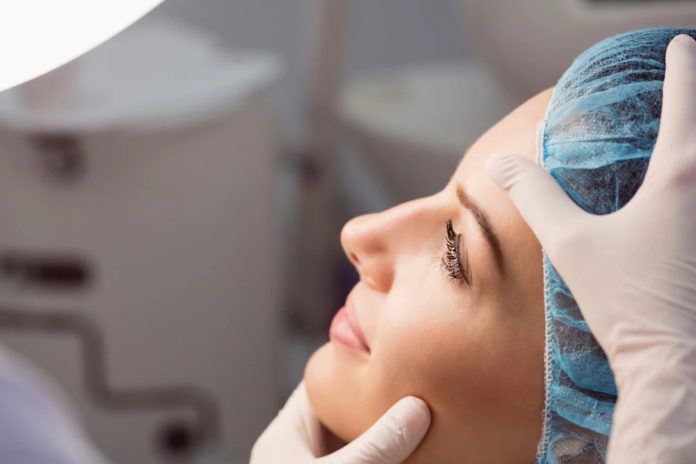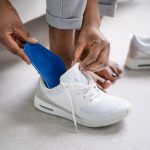Plastic Surgery Recovery: During a hospital stay or procedure, you may encounter many professionals and nurses who all have their roles. Some of them may be working diligently to ensure the best possible outcome for your case, while others may focus on streamlining processes as much as possible. If you’re about to undergo plastic surgery, there will likely be a marked change in how you’re treated. That is to say, rather than being rushed through medical procedures that don’t necessarily need to be performed on you, you will now receive the same care that anyone else would receive. Considering this shift in perspective, it’s essential to take note of physician and nursing treatments during recovery from plastic surgery so as not to disrupt the healing process or cause unnecessary stress. Here are some valuable tips for health care during plastic surgery recovery: You can also visit: Eminence official Canadian site for more information
Be mindful of your body post-surgery.
It’s common for patients to forget about their bodies for a brief period after surgery. This can happen for many reasons, one of which is that you only focus on your recovery. After surgery, your body will be recovering from the effects of anesthesia. A period of time is required for this process, during which your body is likely to feel lighter, dizzy, and groggy. This is entirely normal, but you must stay mindful. When it comes to dressing yourself, try not to overexert yourself, and make sure to use the assistance of caregivers whenever possible. The same goes for bathing and toileting. Your doctor may have prescribed you a specific medication to help ease your recovery, so it’s important to follow the instructions closely.
Doctors and nurses will be more hands-on.
When a doctor is operating on you, they’ll most likely be in the operating room. However, when you’re in the recovery room, a nurse may be standing next to you and checking your vital signs. While this may seem unnecessary at first glance, your body must be supported while healing. You may be lying down in a completely horizontal position when you’re in the recovery room. This can cause discomfort and pain, and you may need pain medication to ease the experience. When a nurse is near, they can quickly assess your condition and administer treatment should it be necessary. This can be particularly useful for those who are in pain.
There will be less talking.
Doctors and nurses may be more hands-on, but it won’t be because they want to be. They’re likely to be quieter and more introspective than during an appointment with a patient who was feeling fine. That’s because, in most cases, they’re checking on you and offering support rather than speaking to you in an attempt to sell you additional services or products. When a doctor is inside your room, they’ll most likely be talking to you through a door, cord, or vent. It would help if you didn’t attempt to communicate with them, as you may inadvertently stress yourself out. Instead, focus on breathing correctly and relaxing, and let your doctors and nurses know you understand what’s happening.
Devices such as ventilators, suction machines and pumps.
During your hospital stay, you may experience a change in your fluid or nutrition intake or medications may be adjusted. This may be done to ensure you’re receiving the best possible level of care, including having a tubing device inserted into your vein or a suction machine placed near your bed. When this is occurring, you must remain calm and compliant. When a nurse inserts a feeding tube or administers nutrition, try not to resist or make a scene. If you’re being suctioned, do the same, as that may be part of the process. It’s easy to become anxious and anxious when you’re in a hospital bed, and you may want to ask for the device to be removed.
Shoes must be removed when you’re in the recovery room.
This is an essential tip for health care during recovery from plastic surgery, as it can significantly ease your health care experience. In the recovery room, you may be on your back, lying in a completely horizontal position. This can cause discomfort. In this position, your legs may be bent, and your feet may be elevated above your head. If you’re wearing shoes, this can cause additional pressure on your Achilles’ tendons.
Don’t forget about post-operative care.
After receiving a particular procedure, such as a double-jaw surgery, you mustn’t forget about post-operative care. You may feel fine and be eager to return to everyday life, but you must take care of your body. You may experience swelling, cramping, and pain, which your surgery may cause. When this is occurring, you must remain still and rest rather than push yourself until you feel better.
Conclusion
During recovery from plastic surgery, your health care team will likely be more hands-on than usual. This can be helpful as it allows doctors and nurses to check your vitals, speed up your recovery, and ensure you’re getting the most out of your care. It can be beneficial to breathe slowly and focus on relaxing during this time. During recovery from plastic surgery, it’s important to remember that your health care team is focused on your recovery, so they may be less talkative than usual. It can also be helpful to stay calm and comfortable while you’re in the hospital and use proper health care equipments as well as Eminence Organic Skin Care products for better results. To help you feel better during recovery, try eating a healthy meal, drinking plenty of fluids, and wearing elevating shoes while in bed.

















